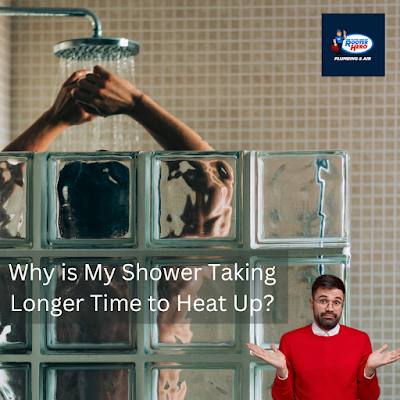Nothing is more glorious than taking a hot shower on a cold, sleepy morning, a stressful day at work. Sometimes a relaxing shower can disappoint you as the water is not warm properly. Here are some problems and factors affecting your system's ability to produce hot water.
1. Blown fuse:
As per Plumber Gilbert, it is also called No Gas. As a machine, it's widespread for
both gas and electric heaters to malfunction. When something goes awry with the
main components of these units, these blow fuses can affect the ability to
produce an adequate water supply to your entire home. Have you ever seen a gas
water heater? If the gas water isn't producing hot water, the pilot light may
have gone out, or the unit is out of gas. A tripped circuit breaker or blown fuse must be blamed for an electric water heater. There could also be some
clogged flame sensor that requires cleaning or electronic ignition, and it may
produce a faint light even when it's receiving electricity. Sometimes these
issues arise with tankless propane and electric tankless water heaters.
2. Old water heater:
Sometimes the water heater gets too old. Some users have used the same water heater for more than a decade. If your water heater is more than eight years old or has undergone significant wear and tear, then this may be why the heater is taking longer to heat up or not. Sometimes water heaters may need to produce an adequate supply of hot water, which indicates that it is approaching the end of its lifetime.
 |
| Why is My Shower Taking Longer Time to Heat Up? |
3. Heating elements:
Sometimes the heating of water is delayed due to
faulty heating elements. Do you face a problem like your water only runs hot
for a short time? Do your shower and fixture only release lukewarm water? The
electric water heater features a set of upper and lower heating elements, and
when these water heaters no longer work, they disrupt the hot water
supply.
Now a question must have been in your head how to know
which heating element is faulty? If there is no hot water and there is a
constant supply of lukewarm water, then it signifies that there is
malfunctioning in the lower heating element. A small amount of hot water, which
quickly turns cold, means there is malfunctioning in lower heating elements.
However, a faulty heating element is a rare concern. It is easy to replace the
defective heating element and doesn't require replacing the water heating unit
entirely.
4. Thermostat:
It is the upper and
lowers heating element of the thermostat which controls the temperature of the
water. The thermostat doesn't generally malfunction in comparison to adjoining
heating elements. They do require testing whenever your system stops producing
hot water. If there is no hot water, then there is a faulty one in the upper
thermostat. If a small amount of water quickly goes cold, the fault might be in
the lower thermostat.
There is always a high chance that hot water can cause a
massive problem with the thermostat of the water heater. So, one must be
careful and take specific steps like checking for the meter and main shutoff
valve partially open. If the valves of the thermostat are open, then the
malfunctioning thermostat is likely to be the issue, more often than not, and
sometimes it may require replacing.
5. Distance:
As per the water heater repair in Gilbert, az,
the greater the distance between the hot water tank and your shower or faucet,
the longer it will take the hot water to arrive. If you have a shower or
kitchen sink at one end and a water heater at the other, your water will always
be in warmup condition.
6. Pressure:
Sometimes Low water pressure can disrupt your water
heater's performance. Lower water pressure can be due to the following reasons:
- A partially closed meter valve
- A partially closed main shutoff valve
- Old pipes
- Faulty pressure regulator
- The plumbing fixtures and faucets might have low-volume restrictors. These barriers are disk-shaped and can affect the water pressure and slow the flow of hot water.
7. Small water heater:
Comments
Post a Comment